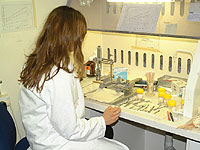|
||||||||||||||||||||||||||||||||||||||
| Pharmacoeconomics - PHPH9114 | ||||||||||||||||||||||||||||||||||||||

Description As limits are placed on health care budgets, from the national to the individual level, the relative value of competing uses of scarce resources is becoming a significant part of decision making. Pharmacoeconomics assists the decision-maker by determining the comparative value of a product, and whether this value is worth the loss of benefits that could have been obtained by using the money in a different way.
In the Australian environment, pharmacoeconomic analyses are considered by the Pharmaceutical Benefits Advisory Committee who advises the Minister on whether the product should be reimbursed on the Pharmaceutical Benefits Scheme. They are also used in hospital formulary submissions within the public hospital setting, and in support material and publications for doctors. Another role for pharmacoeconomics occurs early in the drug development process. Pharmacoeconomic models can help to assess the potential value of a product and they can also identify threshold levels of efficacy that must be met for the product to be commercially viable. This module focuses on the principles of pharmacoeconomics, the process of obtaining reimbursement of a product on the Pharmaceutical Benefits Scheme, and issues in applying pharmacoeconomic theory to the real world. The module also covers economic concepts, efficiency, equity and ethics of decision making in the health care field and provides an overview of pharmacoeconomics internationally. Specific areas covered include the different types of economic analysis, sources of data, randomized trials versus naturalistic or pragmatic trials, quality of life and assessment of utility, and league tables. The module will be of benefit to those wanting to work in the area of pharmacoeconomics and also to those wanting to broaden their knowledge base about this important area |
||||||||||||||||||||||||||||||||||||||


